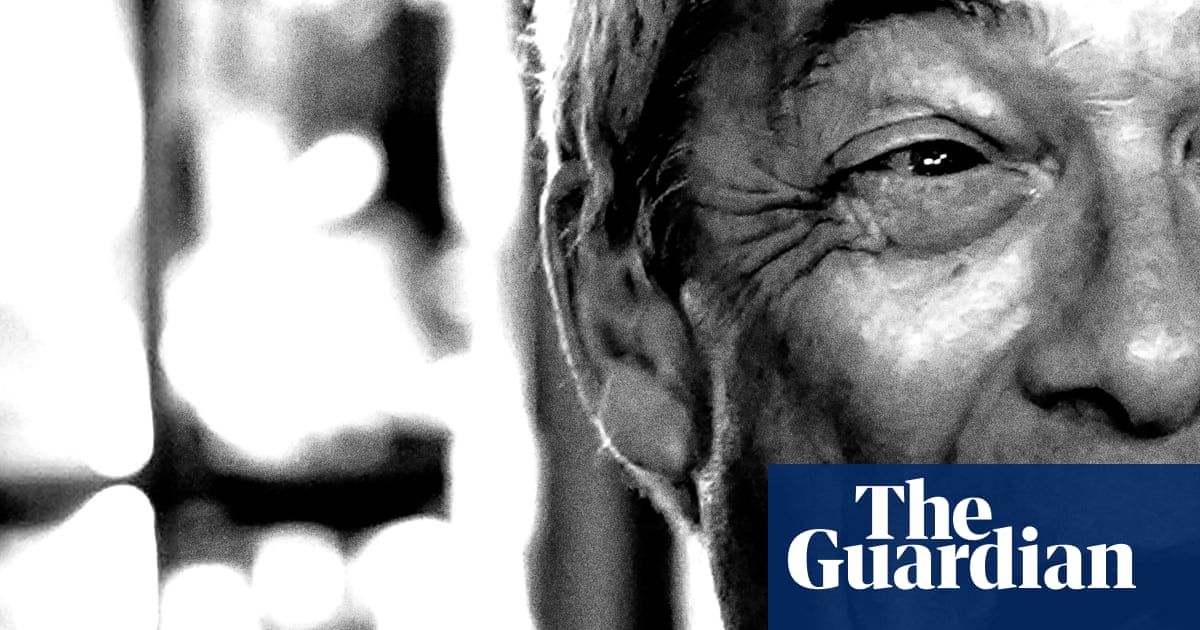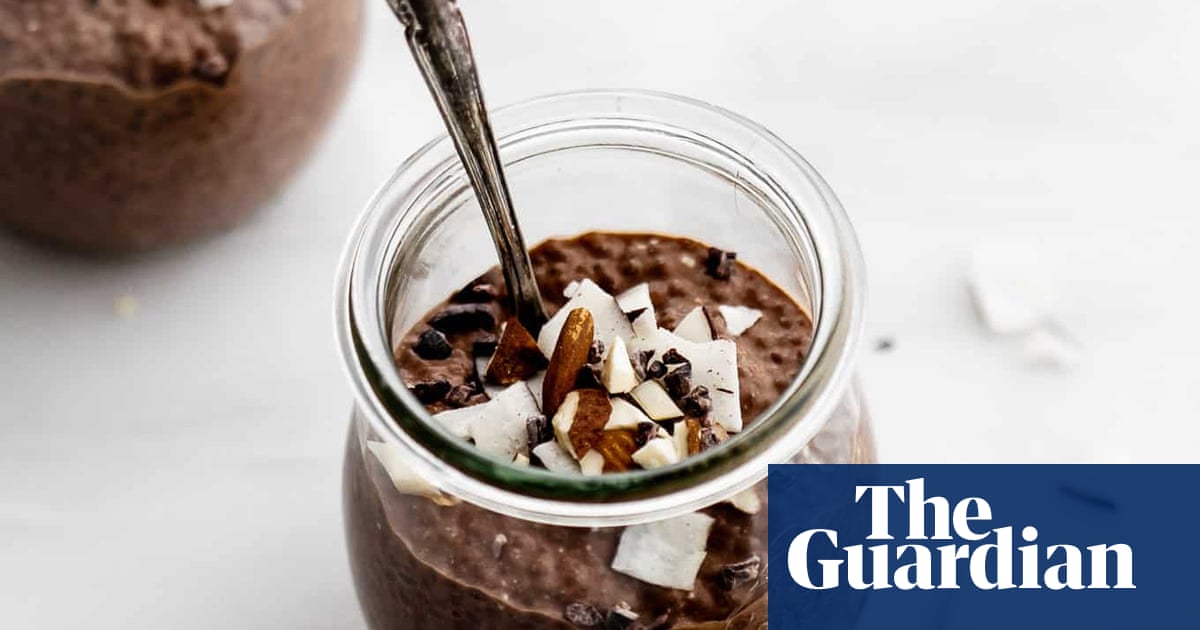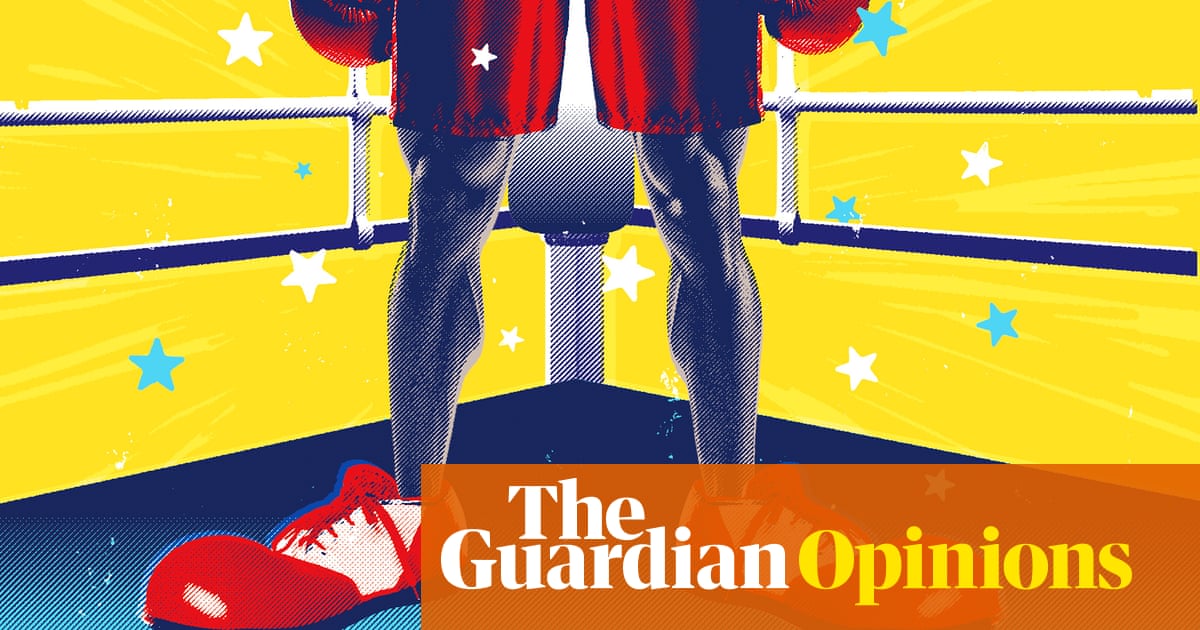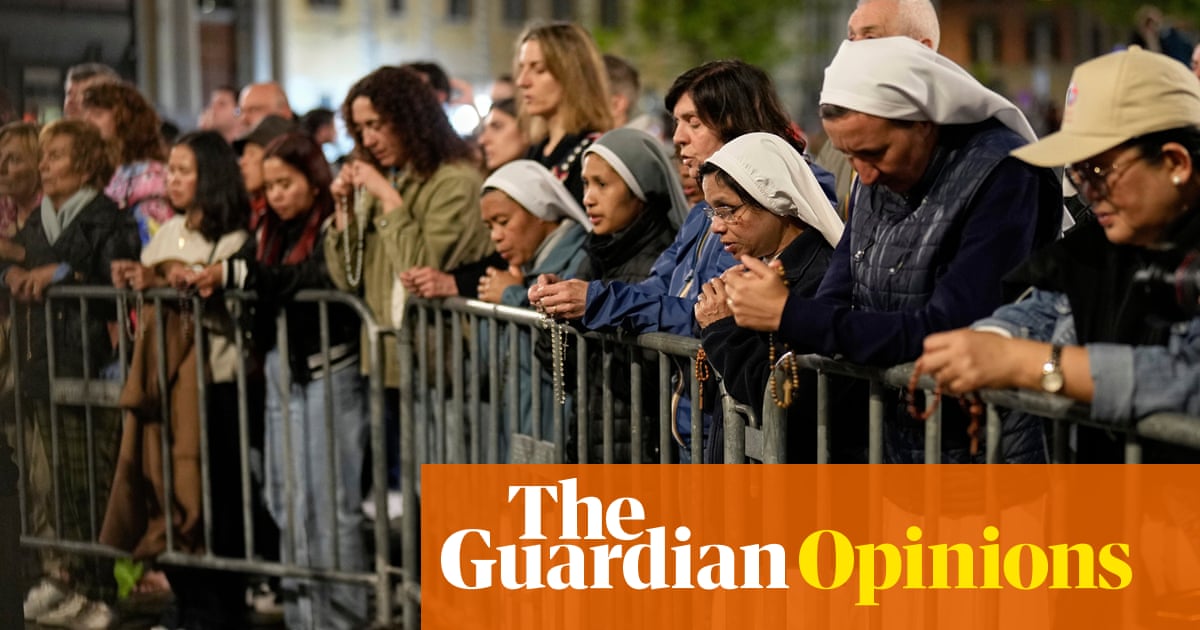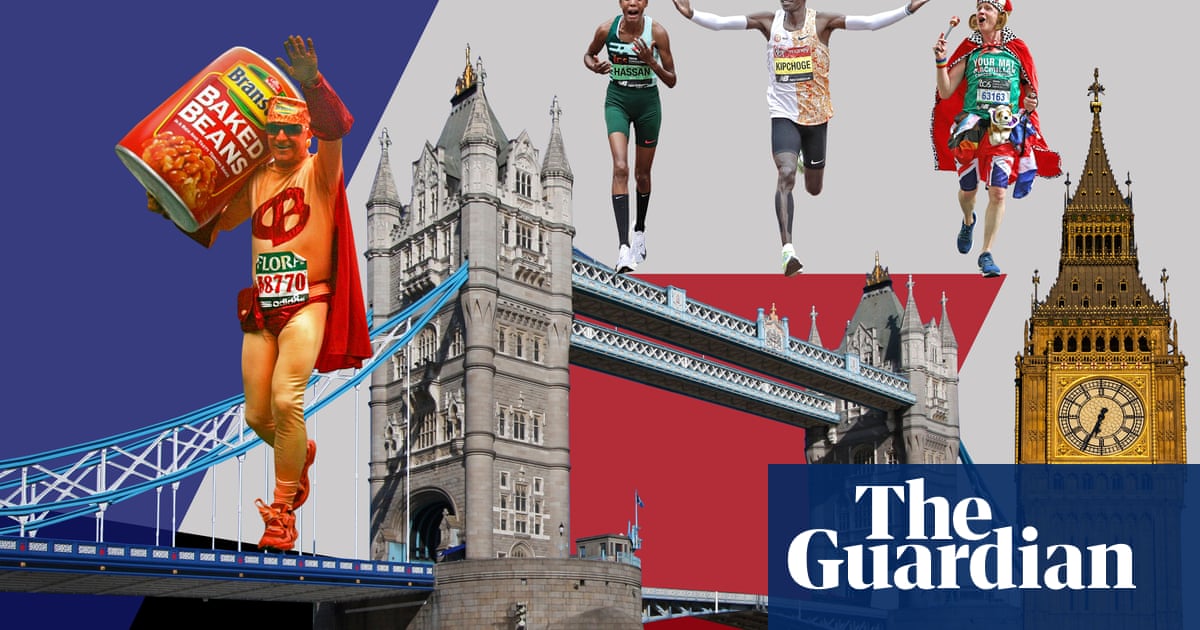Born in Bath in 1980, Russell Howard is one of the UK’s most successful comedians. He started his career on the standup circuit while studying economics at the University of the West of England in Bristol. Television beckoned; he was headhunted for TV show Mock the Week in 2006, and from 2009 to 2015 had his own show on BBC Three. Howard now has a podcast, Five Brilliant Things, and his new standup special, Russell Howard Live, will be available to stream on his website from 15 January. He lives in London with his wife and their baby son.
This photo was a happy memory: I was two and outside my nan and grandad’s house in Midsomer Norton – a place filled with magic. I was playing with my grandad’s cigarettes, and afterwards I’d go and play football with him. He’d probably make his amazing toast later – he used really thick slices of bread and we named it Grandad Toast.
Grandad died in 2016. I did the eulogy at his funeral – I’ve never put more effort into anything in my life. I knew I had to get it right; to somehow reflect what this person meant to me, and to everyone else, which was challenging because I come from a massive family. Dissertation levels of focus were required, but I felt glad my skillset was genuinely useful in a way that it’s normally not.
Spending time with my family is like hanging out with the Pogues. There’s a lot of dominant characters, a lot going on at all times. I’ve got 40 cousins, and age-wise I’m slap bang in the middle. You never wanted to make a mistake around them because you’d get the piss taken. By comparison, I was more of a wallflower. I loved reading. I liked Radiohead and war poetry. When I was a teenager, I was very awkward in my body. But at school I was always funny. I’d get a lot of material from my family. I remember one uncle having a nuclear-looking pint of cider and going: “I could drink three of these, kill you, and not know I’d done it.”
I was a proper “in-betweener” as a teenager. I wasn’t massively academic, but I loved school. It definitely came in handy having a sense of humour. I liked to make the teachers laugh; my classmates too. Boys can be so vicious, and, because I wasn’t a big bloke, you had to kill or be killed. It wasn’t until I saw a Lee Evans standup video that everything clicked. His comedy blew my mind. Billy Connolly, too. After that I just attempted to mimic their style, only writing jokes about being 14. I relished trying to figure out the right wording to make every line funny; a beautiful mixture of maths and magic.
I didn’t tell anyone I wanted to be a comedian, I was just doing it on my own. When I was 18, I did my first ever gig. There was a place called Virgin Mirth in Bristol, and I’d go there every Thursday to try out new material. That led to other gigs around the West Country; I’d make a six-hour round trip to Plymouth for five minutes at Club Fandango, then go back to uni the next day feeling electric; completely overstimulated by this other world outside the lecture hall.
It was exhausting but there was nothing else I’d rather have been doing. The journey there was like a pilgrimage, and making people laugh made me feel 10ft tall. I couldn’t believe I had found the thing that worked for me; it was as if I had a superpower.
When I wasn’t studying, I was a trolley boy at Tesco. I’d be trundling round a car park by day, then conversing with actual working comedians, such as Andrew Maxwell or Gina Yashere, by night. Everyone was nice to me, partly because I looked like I was 12, but also because they’d been the new one in the room once too. When I did a gig with Micky Flanagan, he said: “You’re at uni? You should just quit. You’ve got something.” I wasn’t sure if I could make that leap, but I was certain I wanted to be in his world. As soon as I finished university, I jumped straight into it.
From the ages 18 to 26, I was very countercultural. I didn’t watch TV because I was gigging every night. I was studying the comics in mainstream clubs, student nights, supporting everyone from Ross Noble to John Oliver and Daniel Kitson. After eight years, I felt I had developed my own style, inspired by all the acts I’d been absorbing. To this day, I still love watching standup; I am a proper fanboy. There’s a comedian who I’m obsessed with called John Kearns. Whenever I talk to him, I feel like Taylor Swift going up to Leonard Cohen and saying: “Hi! I think you’re great, by the way!”
after newsletter promotion
The transition from stage to TV happened quickly. Someone from Mock the Week came to see me at the Edinburgh fringe, and asked if I wanted to give it a go. I’d never done topical stuff before, but I enjoyed the comedic homework of it, going through the papers, as well as learning how to write tight jokes – you get a masterclass when you’re in the company of Frankie Boyle and Dara Ó Briain. That snowballed into doing Good News and The Russell Howard Hour. I felt like the frontman of a band: I had this amazing team of writers, as well as researchers, producers and costume designers. My name was on the dressing-room door, but I was collaborating with a huge network of talented people.
There was a stage, after I got a bit more well known, when I Googled everything that had been written about me. I paid no attention to the nice stuff, but became hyperfocused on anything negative. After a year, I realised it was a route to madness. That being said, if I got a really good review today, it would be impossible to pretend it didn’t make me happy.
Even though I was on TV a lot, I never really jumped into the whole celebrity circus. I did a couple of red-carpet events, but realised it’s not my world. Same with social media. I can’t imagine why you’d want to give that privacy away. Particularly with my son; he’s too special to me; so much more than online fodder.
Now that I’m a dad, I’m trying to make sure I spend as much time as I can with my family. When I tour next year in the US and Europe, we’re getting a bus so my wife and baby can come along. I am very conscious this is setting him up for a very different childhood compared with mine. He does spend a lot of time with his grandad, though; but I very much doubt he’ll be playing with anyone’s cigarettes.
Oddballs and peculiar people have fascinated me all my life, and still do. Am I peculiar? I’m clearly odd. Doing standup facilitates it: you have these mad private thoughts that you can validate through the audience’s laughter. It’s like a big societal tick – a way of saying strange things and seeing if you’re insane or not via the random jury in front of you. You’d struggle to find anyone who does standup who isn’t a bit weird. But I like my brain, and I love making people laugh. Especially my son. I’ve spent my life trying to make people laugh, but to get one smile from him is another level. Plus, all I have to do is lift him out of the car seat or wear a pair of pants. Minimal effort, huge reward.

.png) 3 months ago
39
3 months ago
39

